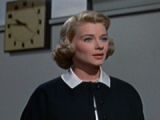My Two Cents on a $650,000 Investment
 Through a publishing contact of mine, I got my hands on a copy of Dana Vachon's debut novel, Mergers and Acquisitions, and read it this past weekend. For the uninitiated, it's former blogger Vachon's roman à clef about his days working on Wall Street.
Through a publishing contact of mine, I got my hands on a copy of Dana Vachon's debut novel, Mergers and Acquisitions, and read it this past weekend. For the uninitiated, it's former blogger Vachon's roman à clef about his days working on Wall Street.I liked the book. I didn’t love it. But I liked it enough to talk about it later with friends who hadn’t read it. There’s a sense that this territory has been covered before, by books and movies as similar to the subject matter as Wall Street and removed from it as The Devil Wears Prada (rich, fashionable, cutthroat people = bad; helping others through journalism or medicine = good). As the PW review pointed out (scroll down to read it), its portrait of the rich – at once sycophantic and horrific -- is a bit of an oxymoron. The book is not particularly qualified to be a true social commentary about young people in Manhattan (at least not most of them -- most definitely not me!), and it’s not an especially hilarious book. Somewhere between those extremes is a well-written novel that’s silly and winking, but when Vachon attempts to pin any sort of morality or consequence – however fleeting – to the characters, the intellectualism comes off as a bit too big for its britches.
It was Vachon’s stellar writing and dry sense of humor that spirited me through the book; I turned the pages quickly to see what crazy, over-the-top scenario he would describe next. What irritated me was the dearth of sympathetic female characters who aren’t either prostitutes or completely bonkers. (But maybe that's Vachon's opinion of women.) I was interested in hero Tommy Quinn's long-suffering mother, but she didn’t get enough page time to make much of an impact. Even with the lack of women to root for, I fell hard for Makkesh Makker, a 29-year-old JS Spencer employee who gives his life to the company.
I don’t feel as strongly about Vachon as the bloggers who love him or the writers who want to rip him a new one (though I love Lizzy Ratner’s writing – her "Murray Hell" piece couldn’t have explained the 'hood better): I don’t want to do him raw, and I don’t hate him for his heritage. I would like to ask him exactly how fictionalized the book was – which parts of it were made out of whole cloth or if most/all is ripped almost directly from his own nights out in the city.
Print publications have described the book as a satire, but I don’t necessarily see how somebody can make fun of such high-falutin' places as Le Bilboquet while choosing to make their dinner reservations there after the fun has been made. Again, it smacks of at least some reverence. It’s possible that Vachon is a little too close to this social caste to properly mock it. Also, according to a few news articles, it seems Vachon used his friends as near-exact molds for the characters. And those same friends still like him – and apparently dine at Le Bilboquet with him. How
that’s possible I’m not sure. Perhaps they haven’t read the book closely, or maybe they’re taking it more lightly than even Vachon himself intended.
A lot of people have weighed in about the book so far. I liked what Emily from Gawker said today: "Five or six more years of actual life experience would have enriched the book considerably, potentially transforming the easy caricatures into insightful portraits." But I think I agree most with Lindsay, who wrote, “It is a much better book than it needed to be.” I don’t have any more sympathy for the rich now than I had before (which is none), and it didn’t change my worldview, though it did change my dinner conversations for a few days.
Verdict? Wait for the paperback and read it on vacation, but you'll sure as hell enjoy it when you do.
Labels: books, dana vachon, Gawker, mergers and acquisitions



0 Comments:
Post a Comment
<< Home